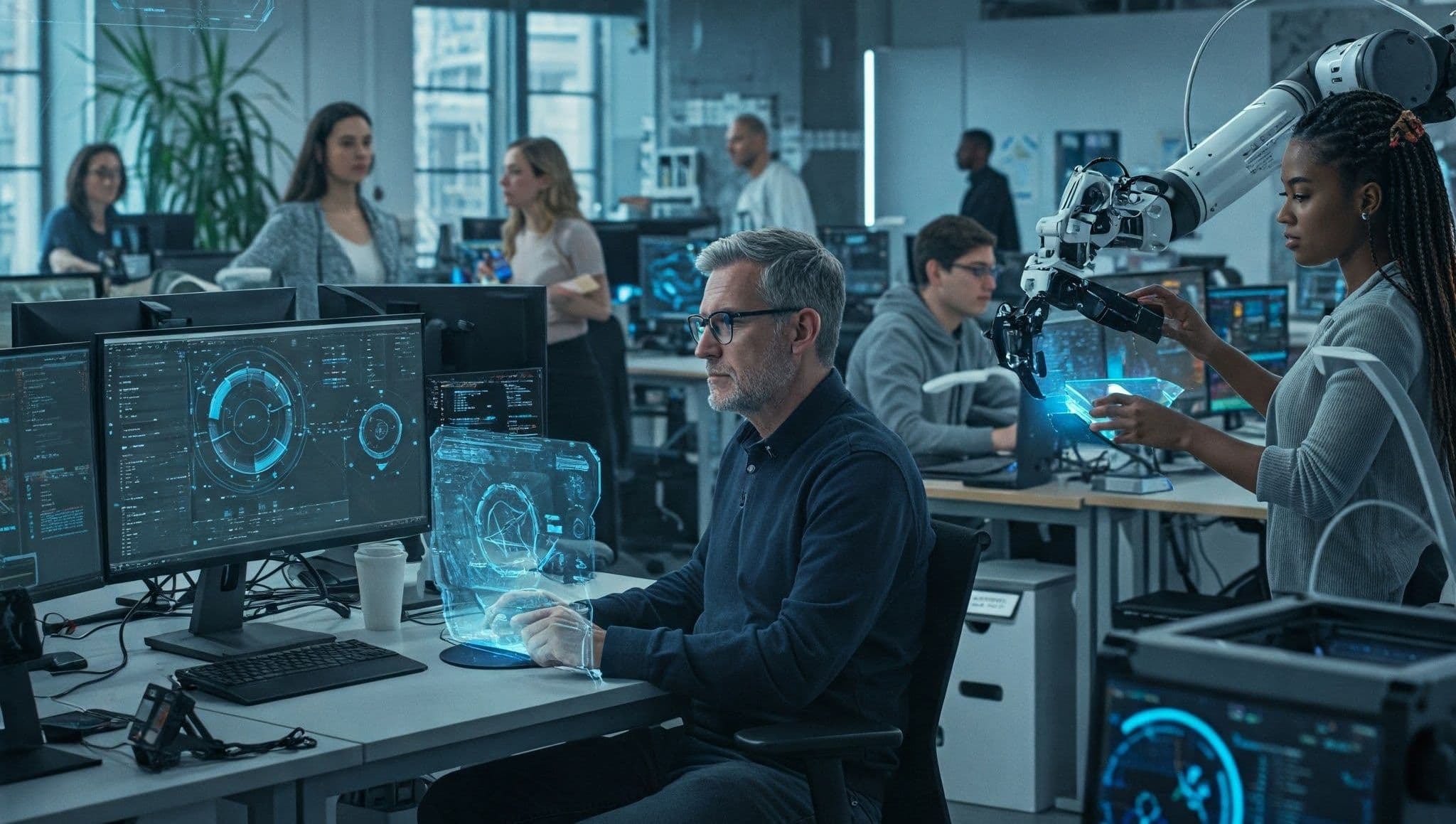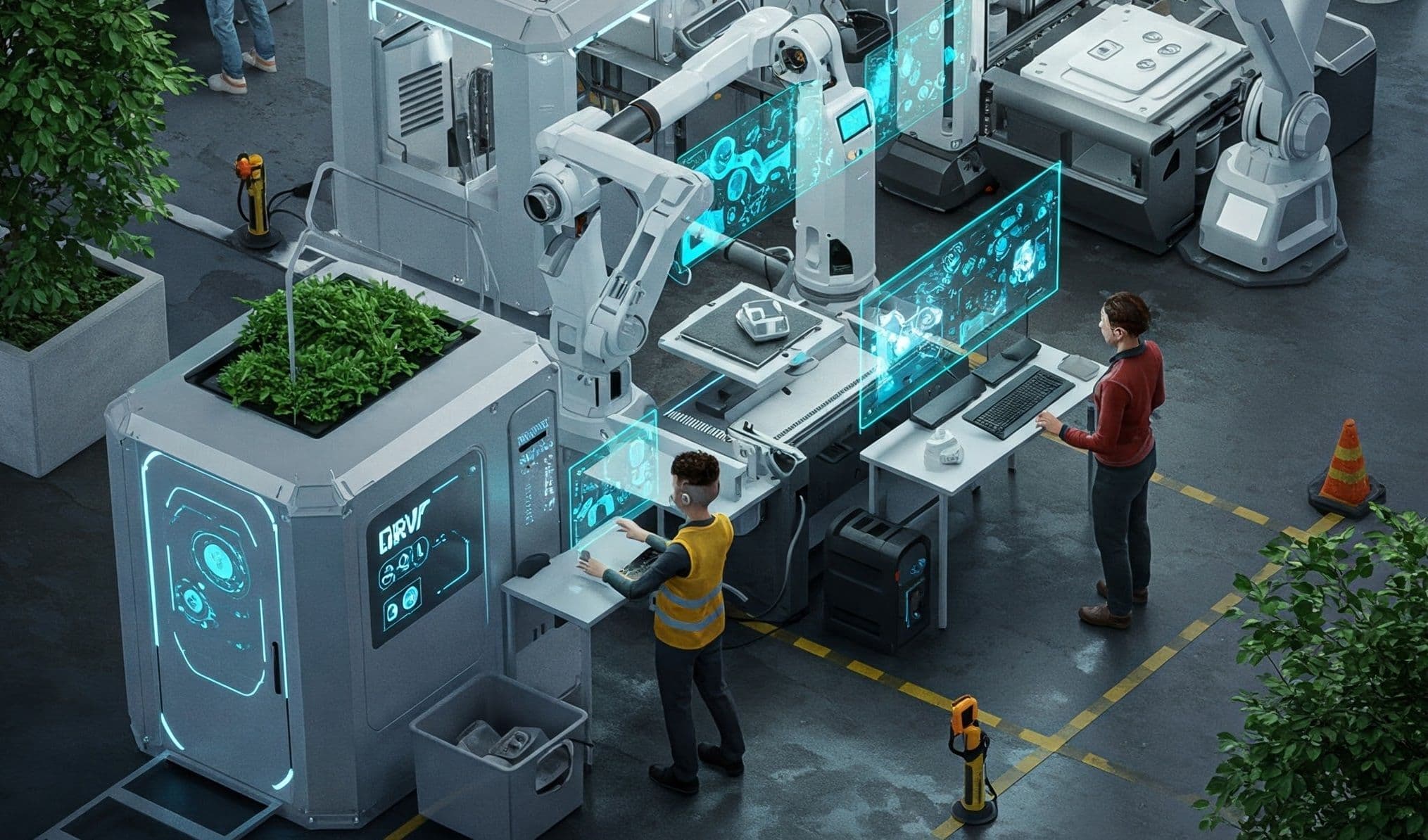
Technology Defines a New Labour Paradigm
Professional skills are undergoing a radical transformation within the digital revolution, demanding adaptability and a commitment to lifelong learning. Workers must develop flexible intelligence, enabling them to collaborate with intelligent systems and solve increasingly complex challenges.The digital revolution is reshaping the global workforce, with emerging technologies driving a profound change in how we work and define professional success.
Artificial intelligence, automation, big data, machine learning, and the Internet of Things are not merely technological trends; they are powerful forces redefining production processes, talent management, and the very nature of work.
This technological transformation goes far beyond the simple elimination of traditional jobs. It represents a complex ecosystem of innovation that, while removing certain roles, simultaneously creates entirely new professional categories and demands innovative skill sets.
The World Economic Forum predicts a 23% structural shift in the global labour market over the coming years, signalling a profound restructuring of professional landscapes across industries.
Jobs with Present and Future
The emergence of new professional domains is a direct reflection of this dynamic transformation.
Artificial intelligence and machine learning specialists have seen an exponential rise in demand, as organisations across sectors adopt sophisticated algorithms to drive efficiency and foster innovation.
Data analysts and business intelligence experts have become essential, transforming vast amounts of data into strategic insights that provide a competitive edge.
Robotics and automation engineers are now integral in industries adopting increasingly sophisticated technological systems, where they design, implement, and maintain complex automated infrastructures.
Cybersecurity professionals have seen their importance skyrocket as digital threats become more sophisticated and widespread. Renewable energy engineers are at the forefront of the transition towards sustainable technological solutions, developing advanced photovoltaic, wind, and energy-efficient systems.
Digital transformation specialists now play a crucial role in aligning technological potential with organisational strategy, guiding companies through complex digital landscapes.
Building the New Paradigm
The debate around automation remains complex and nuanced. While many fear that technological advances will displace workers, international labour organisations present a more sophisticated narrative.
Technology typically does not replace jobs entirely but transforms their characteristics and the skills required. A recent IBM study revealed that 40% of the global workforce will need retraining within the next three years to keep pace with emerging technologies, highlighting the critical importance of continuous learning and the development of digital skills.
Importantly, technical skills alone no longer guarantee professional success.
Soft skills have become equally, if not more, significant. Adaptability, critical thinking, problem-solving, creativity, and emotional intelligence are now essential.
The future workplace will require professionals who can seamlessly integrate technical knowledge with interpersonal skills, collaborating effectively in increasingly complex and dynamic environments.
Educational institutions and corporations must collaborate to navigate this transformative landscape. Continuous training programmes, digital skills certifications, and strategic partnerships between universities, the public sector, and private industries are essential to ensuring a fair and sustainable labour transition.
The objective is not only to adapt but to create an ecosystem that empowers workers to thrive in an increasingly technology-driven world.
Initiatives of a Globalised World
The international response to this digital transformation has seen diverse strategies. Singapore’s SkillsFuture programme provides each citizen over 25 years old with a £400 credit for ongoing training, renewable annually.
Germany has introduced the "Industrie 4.0" programme, a government initiative integrating smart factories with small and medium enterprises, ensuring workers receive continuous training in new technologies.
Finland has radically transformed its education model by introducing programming from primary school and offering free digital skills courses for the unemployed.
Brazil has developed digital training programmes aimed at vulnerable communities, while India has established large-scale technological training centres in collaboration with international companies to help bridge the digital divide.
Reformulating Human Potential
Far from being a threat, technology offers numerous opportunities for those willing to learn and evolve. The creation of new professions and the demand for innovative skills are paving the way for a more dynamic and challenging labour market.
Organisations that invest in digitalisation and human talent development will be best positioned to thrive in this new era.
Ultimately, the future of work transcends technological capabilities. It depends on how companies, governments, and individuals collaborate to leverage technological potential, creating a more efficient, inclusive, and sustainable professional landscape.
The digital revolution is not just about technology; it is about human potential, adaptability, and our collective ability to reimagine work in the 21st century.




